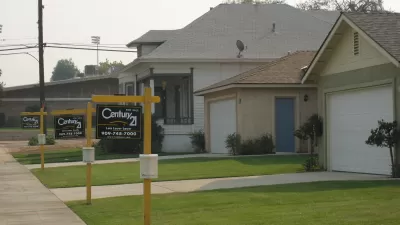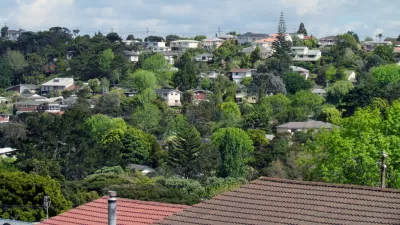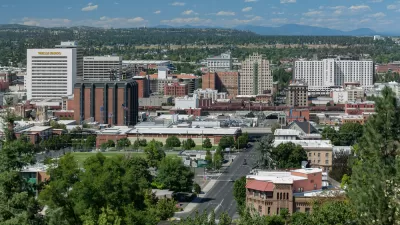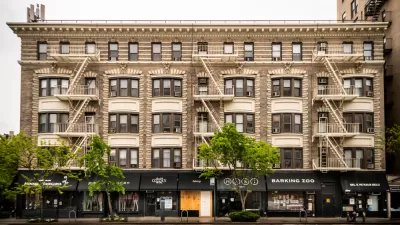Against all odds, both political parties agree on at least one thing: the merits of homeownership. But is buying a home really such a great investment, even for the well-off?

The received wisdom is that it's just better to own a place. And even after the shambles of 2008, that hasn't changed much. Emily Hamilton writes, "Even though the financial crisis revealed the risks that homeowners take on by making highly leveraged purchases, policymakers are still developing new programs to encourage home buying."
As the housing crisis made clear, low-income people shouldn't take the decision to buy lightly. "Joe Cortright recently pointed out that homeownership is a particularly risky bet for low-income people who may only have access to credit during housing market upswings, leaving them more likely to buy high and sell low."
Even for those in a stabler financial position, buying a home isn't necessarily the best investment. "Politicians across the political spectrum tout homeownership as key to a middle-class existence, but homeownership will make many buyers poorer in the long run compared to renting." Renters, after all, can theoretically invest that down payment into vehicles that pay greater long-term dividends. But it should be noted that this argument depends a great deal on where you buy.
Hamilton discusses the faults of online "buy-versus-rent" calculators that may be skewed to favor buying property. And she emphasizes another downside of buying: it reduces mobility in an economy that prizes it.
From the article: "Often, home ownership simply leads to higher levels of housing consumption rather than wealth-building. [...] But from a policy perspective, does it make sense to encourage people to save up for a poor investment, or would those resources be better spent on financial literacy programs?"
FULL STORY: Urban[ism] Legend: A Home Is A Good Investment

Maui's Vacation Rental Debate Turns Ugly
Verbal attacks, misinformation campaigns and fistfights plague a high-stakes debate to convert thousands of vacation rentals into long-term housing.

Planetizen Federal Action Tracker
A weekly monitor of how Trump’s orders and actions are impacting planners and planning in America.

In Urban Planning, AI Prompting Could be the New Design Thinking
Creativity has long been key to great urban design. What if we see AI as our new creative partner?

King County Supportive Housing Program Offers Hope for Unhoused Residents
The county is taking a ‘Housing First’ approach that prioritizes getting people into housing, then offering wraparound supportive services.

Researchers Use AI to Get Clearer Picture of US Housing
Analysts are using artificial intelligence to supercharge their research by allowing them to comb through data faster. Though these AI tools can be error prone, they save time and housing researchers are optimistic about the future.

Making Shared Micromobility More Inclusive
Cities and shared mobility system operators can do more to include people with disabilities in planning and operations, per a new report.
Urban Design for Planners 1: Software Tools
This six-course series explores essential urban design concepts using open source software and equips planners with the tools they need to participate fully in the urban design process.
Planning for Universal Design
Learn the tools for implementing Universal Design in planning regulations.
planning NEXT
Appalachian Highlands Housing Partners
Mpact (founded as Rail~Volution)
City of Camden Redevelopment Agency
City of Astoria
City of Portland
City of Laramie





























